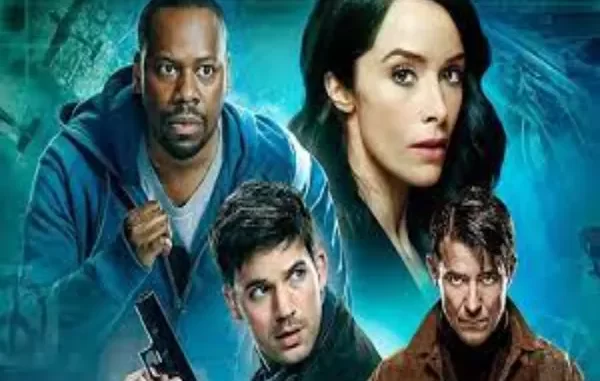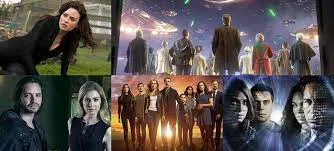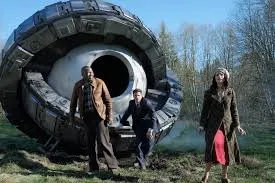
Exploring Alternate Realities in Time Travel TV
Time travel is an intriguing concept that has captivated audiences for decades. It allows for an exploration of alternate realities and the potential to alter the course of history. Time travel has been a popular theme in television for many years, with shows such as Doctor Who, Quantum Leap, and Outlander. These shows explore the possibilities and consequences of time travel, often featuring a protagonist who jumps from one timeline to another in a quest to correct a mistake or prevent a disaster.
Time travel in television often involves the exploration of alternate realities. The main character may travel to different timelines and alternate histories, often discovering a world that is quite different from their own. In some cases, they may even discover a new version of themselves living in a different timeline. This can lead to fascinating plotlines and moral dilemmas as the protagonist attempts to balance their own fate with the fate of the alternate realities they visit.
The consequences of time travel are also frequently explored in television shows. Characters often struggle with the moral implications of changing the past, and must decide whether to accept the consequences of their actions or try to undo the changes they have made. This provides an opportunity for thoughtful reflection on the power of the past and how it can influence the present and future.
Finally, time travel also allows for humorous and exciting plotlines. Characters can find themselves in a variety of comedic and dangerous situations, often due to the unexpected results of their travels. This can provide a great deal of adventure and entertainment for viewers.
Time travel in television has provided a wealth of exciting stories and thought-provoking themes for many years. By exploring alternate realities and the consequences of time travel, these shows have captivated audiences and invited them to contemplate the possibilities of their own lives.
Charting the History of Time Travel TV

Time travel has long been a popular topic in television, from shows that feature time travel as a main plot element to shows that use time travel as a narrative device. Throughout the years, television writers have explored the possibilities of time travel, creating stories that explore the consequences of meddling with the past and the future.
The earliest television series to feature time travel was the British show Doctor Who. The show first aired in 1963 and follows the adventures of a time-traveling alien known as the Doctor. The Doctor uses a time-traveling device called the TARDIS to explore different times and places. Since its debut, Doctor Who has become one of the longest-running science-fiction shows in history.
In the United States, the first show to feature time travel was the 1980’s series Quantum Leap. The show follows a scientist who is able to travel through time and inhabit the bodies of people in different time periods. Through his travels, he attempts to repair history and set right the wrongs of the past.
In the 1990s, The X-Files brought time travel to a new level. The show featured a time-traveling agent who was sent back in time to investigate cases that were linked to alien activity. This show helped to popularize the idea of time travel as a tool to explore the mysteries of the past.
In the 2000s, the show Lost featured time travel as a major plot device. The show follows a group of people who are stranded on a mysterious island and discover they are able to travel through time. The show explores the consequences of their time-traveling adventures and how it affects their lives in the present.
In recent years, time travel has become an even more popular topic in television. Shows like Timeless, Outlander, and 12 Monkeys use time travel as a way to explore the past and to tell stories about history and humanity.
Time travel will no doubt continue to be a popular topic in television for years to come, as writers explore new ways to use the narrative device of time travel to tell stories and explore the possibilities of the past, present, and future.
Rewriting the Rules of Time Travel TV
Time travel has long been a beloved trope in TV and film. However, as the medium evolves, so too must the rules of time travel. In order to craft compelling stories, writers must consider the complexities of time and the implications of time travel.

Before beginning a time travel story, it is important to first decide on a timeline. This timeline will determine the rules of time travel and the consequences of traveling through time. It is important to consider the effects of time travel on both the past and the future.
When constructing a story involving time travel, one must also consider the notion of causality. This is the concept that events are a result of prior events. This also means that any events that occur as a result of time travel must be consistent with the timeline and the laws of cause and effect.
In addition, it is important to consider how characters navigate the timeline. This could involve jumping between different points in time, or using devices such as time machines or time loops. It is important to consider the implications of these devices and the effects they have on the timeline.
Finally, it is important to consider the consequences of time travel. This could include characters being confronted with alternate versions of themselves, or having to deal with the consequences of their actions in the past. It is important to consider how these consequences affect the characters, as well as the timeline.
By considering these rules and implications, writers can craft compelling and thought-provoking stories involving time travel.
Diving Into the Unknown With Time Travel TV

Time travel is a concept that has long captivated the imaginations of scientists, authors, filmmakers, and viewers alike. From H.G. Wells’ classic novel The Time Machine to the blockbuster movie series Back to the Future, time travel stories have been a staple of popular culture for more than a century. But what would it be like to actually go back in time?
This question is explored in the Time Travel TV series, which follows the journey of five friends as they travel back in time to explore the past. Along the way, they encounter many challenges and unforeseen obstacles, as well as some unexpected surprises.
The series follows the group as they try to make sense of the past and determine how their actions will affect the future. The show also explores the philosophical implications of time travel, as the characters grapple with the idea of changing history and the implications of their actions.
Time Travel TV offers viewers an immersive experience, as the group travels to various locations from different eras. Viewers get to experience the sights, sounds, and culture of each era as the group interacts with the locals and learns more about the past.
The series also delves into the science of time travel, as the characters try to understand the physics and mechanics of traveling through time. With each episode, viewers get to explore a new era, and learn more about the implications of time travel and its effects on the present and future.
Time Travel TV is a unique and fascinating exploration of time travel and its implications, and offers viewers an exciting way to experience the past. If you are looking for a truly captivating and immersive experience, Time Travel TV is the perfect show for you.
Unlocking the Mystery of Time Travel TV
Time travel has long been a topic of fascination in science fiction, literature, and popular culture. But what is time travel, and is it even possible? Unlocking the mystery of time travel is a complex journey into the realm of science, physics, and philosophy.

At its simplest, time travel is the concept of moving through time, either forward or backward, in a manner that allows a person to interact with the past or the future. Although the idea of time travel has been around for centuries, it was only in the late 19th century that physicists began to take it seriously. In the early 20th century, physicists such as Albert Einstein began to explore the possibility of time travel through his theories of relativity.
Einstein’s theories showed that time is not absolute, but rather a physical concept that is relative to the observer. This means that time can be stretched, distorted, and even reversed, depending on the point of view. In other words, time travel may be theoretically possible, but it would require a person to travel faster than the speed of light.
There are several theories of time travel, including the possibility of time loops and parallel universes. In a time loop, a person could theoretically travel back in time and repeat the same events over and over again. Similarly, in a parallel universe, the person could travel to an alternate universe and experience different events.
Although the possibility of time travel remains a mystery, many scientists believe that it could be possible in the future. In the meantime, time travel continues to captivate the imagination, fueling stories and speculation about the past, present, and future.






Leave a Reply